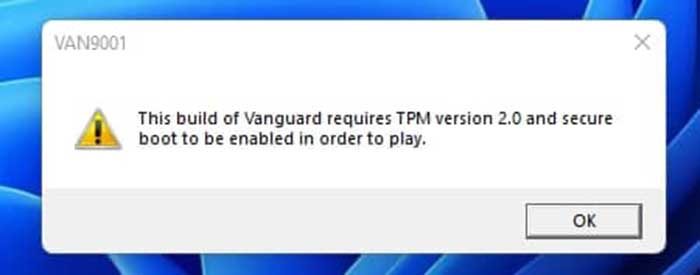Valorant is a popular free to play first person hero shooter which majors in 5 vs 5 competitive online multiplayer action. The game was officially released just over a year ago and is developed and published by Riot Games, also famous for the very popular League of Legends (often referred to as LOL), a free to play MOBA.
If you check out the Valorant PC minimum and recommended specifications pages, you will note that, like many such f2p titles looking for widespread adoption, its demands are rather low. The top-tier 'high-specification' PC it recommends for 144Hz gameplay, for example, is a PC with an Intel Core i5-9400F or an AMD Ryzen 5 2600X or better, an Nvidia GTX 1050 Ti or an AMD Radeon R7 370 or better, plus 4GB of RAM, and a 64-bit OS (Windows 7, 8, 10).
With the above in mind, it appears odd that Valorant, when installed on Windows 11 systems, is being very strict about hardware specs. More precisely, it has been spotted (by AntiCheatPD via XDA Developers) that "Valorant has started to enforce both TPM and Secure boot if you are playing on Windows 11 to ensure a trusted platform when playing Valorant." The AntiCheatPD, goes on to assert that "Riot Vanguard team yet again leading the anti-cheat industry in the right direction for competitive integrity".

Regular HEXUS readers will be aware of Windows 11's minimum hardware requirements, and the minor tweaks they have been through despite enthusiast outcry. In summary, Microsoft says Windows 11 will only be offered as an upgrade on systems with an Intel Coffee Lake / AMD Ryzen 2000 CPU or newer, DX12 compatible graphics, 4GB of RAM, 64GB storage, Secure Boot, and TPM 2.0 security. Since that initial launch info, Microsoft has added a few outlier CPUs to the compatibility list, and confirmed that users will be able to install Windows 11 final from the ISO images that will be made available on any minimum spec CPU-based system (1GHz+, 2C/2T+) but won't be catered for by Windows Update.
If you are one of those that do use the Windows 11 ISO install loophole (or are currently testing the beta on a similar system) then that won't be OK to play Valorant. The AntiCheatPD welcomes this stringency by Riot Games, saying that "This will make it much harder to cheat, and not only that HWID [hardware identifier] bans will finally not be bypassed due to how TPM works, but this strategy should be adopted. To every game."

Sadly, at this time, Riot Games hasn't made any public statements on this feature spotted in Valorant / Vanguard anti-cheat system. It would be good to know its thinking on this particular move. Probably more important to many would-be Windows 11 adopters, who might be tempted to force upgrade using the ISOs, is whether other publishers are going to follow suit. Similar moves by popular PC stores like Steam, Origin, UPlay, EGS and games on these platforms would be highly impactful.













